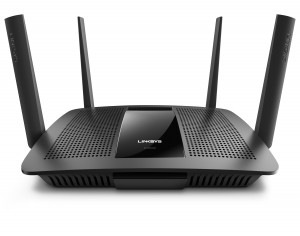Another effort towards a more secure home-network router
Article
This crowdfunded router updates its own security | Engadget
From the horse’s mouth
Project Turnis
Crowdfunding page (Indiegogo)
My Comments
A constant thorn in the side of the secure-home-network effort is the network-infrastructure equipment. This is more so with the router which stands between the Internet connection and the home network.
There have been issues where the firmware on the typical home-network router hasn’t been updated or is riddled with software exploits and bugs that can make it attractive to cyber-criminals. It is in addition to these devices being configured poorly, typically running “out-of-the-box” default configurations like “admin/admin” management passwords or default ESSID names and passwords for their Wi-Fi wireless-network segments.
AVM took a bold step towards this goal by supporting automatic software updating for their Fritz!Box routers. But now a Czech effort, spearheaded by the Czech Republic’s domain-name registry, has taken place to facilitate an open-source router design that also supports automatic software updates and enhanced networks security.
The Project Turnis effort is based around a multi-computer effort which keeps track of security threats that can affect home and small-business networks and uses this to amend firewall rules to protect your network better.
The router supports Gigabit Ethernet for WAN and LAN connections and 802.11a/g/n dual-band for Wi-Fi wireless LAN connections and can even support USB-based failover functionality with a USB mobile-broadband modem. It also has native IPv6 capability which makes this unit futureproof and able to work with next-generation broadband. There is even a view to have this router designed to work with the Internet Of Things as a hub device or to store data.
All of the software and even the hardware design is open-source with the software being a “fork” of the OpenWRT open-source router firmware effort, which can allow for further examination and innovation. This can lead towards more vendors offering home and small-business routers and gateways that are designed for security which would lead to a breakthrough for an affordable secure Internet service for consumers and small businesses.
The router is also about supporting other “central data server” roles such as being a NAS once coupled with a USB external hard disk or even a DVB-T broadcast-LAN server when DVB-T USB tuner sticks are connected. But I would expect a lot more from these devices like VPN endpoints, public hotspot functionality and the like. Who knows what could come about?

